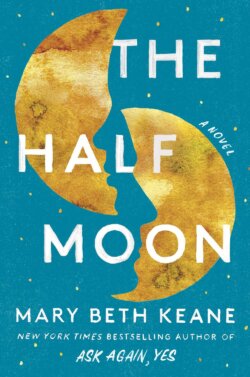★ The Magistrate
Police procedural novels set in China often have a decidedly different feel from their European and American counterparts. As public servants are paid so poorly in the Middle Kingdom, there is a thriving shadow economy of grift and clandestine deal-making. The rule book is scarcely more than a fairy tale, broadly ignored by law enforcement and the criminal element alike. Case in point: Brian Klingborg’s The Magistrate. His protagonist, Deputy Chief Inspector Lu Fei, is one of only a handful of honest cops, and thus he is roundly despised by most of the higher-ups. However, on the rare occasion when a fact-driven investigation is required, Lu is the go-to guy. As The Magistrate begins, someone is targeting corrupt officials and subjecting them to excruciating torture and/or death. It soon becomes evident that a series of medieval interrogation methods are being utilized, all on the orders of someone calling themself the Magistrate. When his longtime nemesis, Mr. Xu, a corrupt fellow cop, succeeds in sidelining Lu with a trumped-up murder charge, it will take some clever planning and more than a little assistance from some supposed bad guys for the canny policeman to prevail. With its nonstop action, suspense galore, fascinating locale and compelling characters (even/especially the nefarious ones), The Magistrate ticks all the boxes.
Viviana Valentine Goes Up the River
Since last we checked in on plucky Viviana Valentine, she’s been promoted from girl Friday to full-time sleuthing partner in the private investigation agency of Tommy Fortuna, allegedly the Big Apple’s number one gumshoe. Oh, Tommy is still the boss, but Viviana proved her mettle in her first outing (Viviana Valentine Gets Her Man), and Tommy is practically a sensitive, New Age guy as 1950s male bosses go. Emily J. Edwards’ follow-up, Viviana Valentine Goes Up the River, is clever and witty, and it features some of the snappiest narration and dialogue in modern whodunits. This time out, Viviana and Tommy investigate some mysterious happenings in and around the home laboratory of Buster Beacon, a wealthy socialite/inventor. Their stay at Buster’s estate in upstate New York is punctuated by an evening gathering of neighbors and investors, all blissfully unaware of the impending snowstorm that will keep them imprisoned for some time in their gilded cage. This would not be so bad, were it not for the inconvenience of a locked-room murder in their midst, which will bring their jolly gathering to a screeching halt. The mystery has a pleasingly convoluted Knives Out vibe, Agatha Christie-esque but with a modern overlay of dry humor, much of it provided by Viviana’s narration. It’s good fun from beginning to end, with a surprise or two for even the most jaded suspense-o-phile.
The Eden Test
An upstate New York setting also figures prominently in Adam Sternbergh’s cinematic psychological thriller The Eden Test, even though it’s set seven-odd decades later. Daisy and Craig’s marriage seems, if not on the rocks, at least headed firmly in that direction. One of them has taken a lover, and there are more secrets bubbling not far beneath the surface. So Daisy takes matters into her own hands and books a week at a couples therapy retreat built on the concept of seeking seven answers to seven relationship questions in seven days. Phones are forbidden, and sometimes it appears that honesty has been proscribed as well. It doesn’t take long for things to go slightly off the rails, and then more than slightly. The counselors are a bit weird, as are the staff and the townspeople, and the whole scenario is filled with the sort of unease that you might find in “Twin Peaks” or at the Overlook Hotel in Stephen King’s The Shining, minus the supernatural component. And just when you think you have anticipated the big reveal, author Sternbergh delivers “the big nope,” forcing you to reconsider your so-called aha! moment.
★ The Body by the Sea
When I reviewed Jean-Luc Bannalec’s The Granite Coast Murders a couple of years back, I opined that the author’s portrayal of Brittany, France, was mesmerizing, noting that “it has been elevated into my top 10 places I need to visit, all thanks to Bannalec.” I would hope, however, that when I do finally visit Brittany, I can sidestep the murders that seem to bedevil Commissaire Georges Dupin. Bannalec’s latest Brittany novel, The Body by the Sea, opens in the seaside town of Concarneau, where Dr. Chaboseau, a noted cardiologist, has just taken a header from a balcony above Dupin’s favorite restaurant, the Amiral. Chaboseau had reportedly been involved in some contentious business relationships in the town, although perhaps nothing that should have risen to the level of homicide. Still, somebody was responsible; moreover, it will not be the last murder in this chain of events. Short-staffed thanks to a holiday weekend, Commissaire Dupin is the only on-duty cop save for a couple of very green recruits, so the case is rife with obstacles from the get-go. There is, however, a novel twist, so to speak: Some facets of Dupin’s current case echo plot points from a pre-World War II novel, which was in turn based on a real crime. Curiouser and curiouser, and it all leads to just the sort of surprise ending that readers long for. And as before, they are treated to fun facts about the food, landscape and denizens of Brittany along the way.




















































































